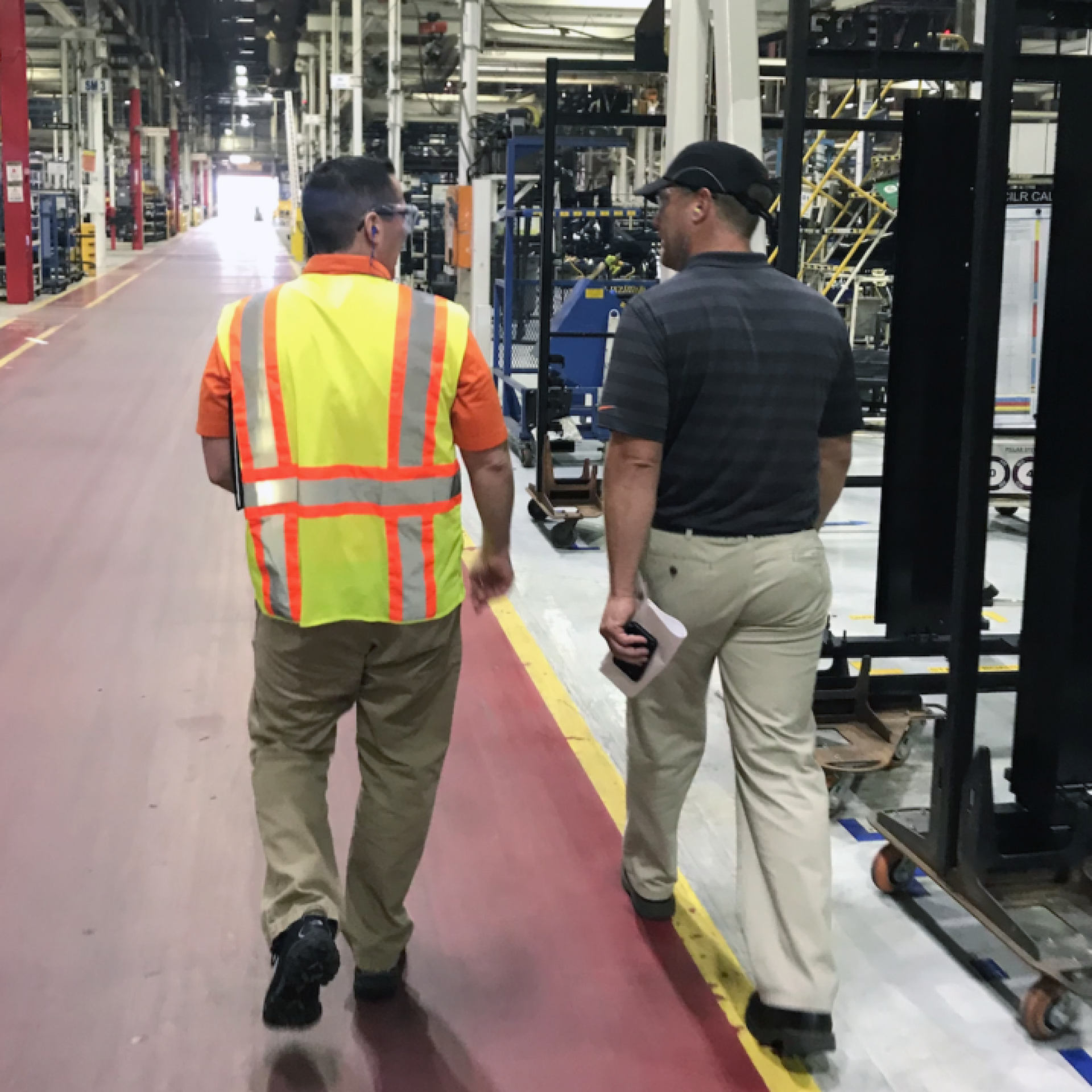Food Manufacturing Casters: How to Buy Replacements
If you are replacing the casters on the carts in your food manufacturing facility, make sure you know what you are looking for.
Read on to understand the features and specifications you need when buying this unique type of caster.
You are replacing the casters on your food manufacturing carts, bins, racks and dollies for a reason. They are poorly made, or noisy, or they damage your floors, or they don’t stand up to the harsh treatment they must endure in your facility.
Your first task is to discover exactly what you are replacing. You are likely replacing the casters on a cart made by a brand-name manufacturer, such as Rubbermaid, New Age Industrial or Metro.
Swivel Versus Fixed
First, count the types of casters you need. There are two types of casters: swivel and fixed. A typical food manufacturing cart or bin has two fixed casters on the front for maintaining direction and two swivel casters on the rear for changing direction. But some carts have four swivel casters. So, make sure you know exactly what you are replacing on your cart.
Brakes Versus No Brakes
Next, examine your casters to see how many of the casters are fitted with brakes. Typically, a cart, rack or bin used in food manufacturing has four casters, two of which have brakes. Examine yours so that you know how many casters you must buy that are fitted with brakes.

Looking to Buy Food Manufacturing Cart Casters?
See our selection →
Caster Material
You need to pick casters that are manufactured from a material that will withstand your environment, including steam and high temperatures. Look for casters that are corrosion and hydrolysis resistant, such as stainless-steel casters.
Mount Type
Look at the top of your casters to see how they are attached to your cart or bin. Casters attach to carts with either a plate mount or a stem. A plate mount features a square or rectangular piece of metal with holes punched in it. The plate attaches to the cart with bolts placed through the holes, held in place with washers and nuts.
Stem mounts feature a long post (the stem) that inserts into a vertical channel in the leg of the cart. Naturally, you must replace your plate mounts with plate mounts, and your stem mounts with stem mounts.
Wheel Size
The casters on food manufacturing carts and racks come in a variety of sizes. Sizes are measured in two dimensions: (1) the diameter of the wheel, and (2) the width of the tread. Wheel diameters are typically whole numbers, the most popular sizes being three-inch, four-inch and five-inch diameters. Tread widths are typically one-inch and a quarter.
So, get your tape measure out and measure your caster wheels so that you buy the identical size casters you need to replace what you already have.
Tread Material
If you are replacing the casters on your food manufacturing carts to reduce caster noise around your facility, consider neoprene. Neoprene wheels are known for their smooth and quiet operation. They are much quieter than casters made from plastic or cast iron.
Neoprene is also highly resistant to harsh chemicals, grease, oil and animal fats. If your carts go through harsh chemical wash-downs, neoprene wheels are a great choice because they don’t degrade after coming into contact with mild acids and solvents.
Casters made from neoprene rubber are also a great option if your carts spend a lot of time going into and out of freezers because they withstand temperatures as lows as -20°F to as high as 180°F. This makes them suitable for many food-processing applications.
Other excellent tread materials are nylon, polyurethane and phenolic.
Weight Capacity
Your final consideration is weight rating. Make sure you choose casters that are rated for the weights your carts carry. If you buy casters that are under-rated, they will make your carts harder to pull and push, they will fail prematurely, and they will put your workers at risk of injury.
Conclusion
You are replacing the casters on your food manufacturing carts because you are unhappy with the current ones. Just make sure you take your time in choosing your replacements. Look for brands and models that are designed to withstand the harsh working environments of the food manufacturing industry.
Caster Connection carries a range of food manufacturing carts that are idea for a wide range of indoor applications.
Need caster solutions from top experts?
Get Rolling Here with Caster Connection's Engineers and Solutions Experts →